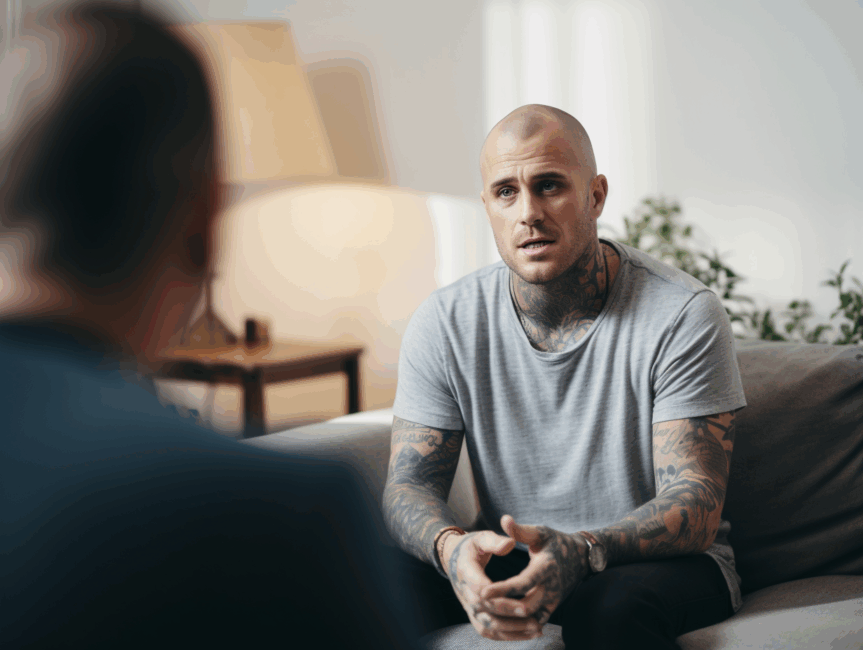The Recovery Village Cherry Hill at Cooper provides customized drug and alcohol rehab with 24/7 medical care across from Philadelphia to guide patients towards a life free from addiction.
Inpatient rehab, or residential treatment, is a highly structured, intensive addiction treatment. Patients live at the facility, away from drugs or alcohol, and receive evidence-based treatment from licensed professionals throughout the day. Inpatient rehab helps you focus entirely on your recovery to give you the tools required to stay sober.

Attending inpatient rehab could be life-changing if any of these apply to you.
If any of these items apply to you, please call 856-890-9449 now. A Recovery Advocate is standing by to discuss the right treatment plan for you.

How long it takes to complete treatment depends on the person’s behavioral health needs and substance use history. Most clients finish medical detox and inpatient rehab programs in 35–60 days.
Leaving treatment early often leads to relapse and overdose, so we encourage clients to complete their treatment plans entirely. However, as long as they are not a danger to themselves or others, clients may leave rehab, even against medical advice, at any time.
Yes, many people began their lifelong recovery with inpatient addiction treatment. While there is no “cure” for substance use disorder, recovery is possible. We consider inpatient rehabilitation successful based on improvements to our client’s physical and mental health, employment or educational status, relapse time, safety and legal status and relationships with loved ones.
Insurance may cover some or all of the inpatient rehab costs. The Recovery Village Cherry Hill at Cooper can also work with clients without insurance to develop a private pay option.
Attending inpatient treatment will mean leaving your job, at least temporarily, but there are Several laws in place that can help protect employees when they attend inpatient rehab.
Treating your addiction is the best way to create a better future for your children. While there are no guarantees you’ll maintain child custody, completing rehab to reduce the negative effects of addiction on your life may make you more likely to keep your children.

Speak with a Recovery Advocate who can answer your questions and get you the help you need.
Inpatient rehab provides you with the tools, self-awareness and support required to live a substance-free life.
During your inpatient stay, addiction experts guide you in a full-time treatment plan that addresses your symptoms and the underlying causes of your addiction. This includes treatment for co-occurring mental health disorders and medication-assisted treatment as medically appropriate.
What we offer
One-on-One Counseling
Art Therapy
Chef-led nutrition program
Group Therapy
Gender-specific groups
Trauma-informed care
Relapse Prevention Program
12-Step Groups
EMDR Therapy
DBT Therapy
CBT Therapy
The Recovery Village Cherry Hill at Cooper is in-network with most national and local insurance providers. We can confirm your insurance coverage or discuss private payment options.

I never thought I would be where I am today, and I owe that to my recovery. I want to be that example for the patients that come in here.
Angela Baxter
Counselor at The Recovery Village Cherry Hill
Kevin Murrell
Alumni
My life has became something that I’m proud of and something I can be grateful for.
Joseph McDermott
Alumni
Honestly everyone who’s played at part in this journey it will be impossible to single out one individual. I will have to say The Recovery Village played the biggest part.
Isaiah Richardson
Alumni
Whether you or a loved one is struggling with addiction. Give us a call today to take the first step.

The Recovery Village Cherry Hill at Cooper offers comprehensive addiction treatment for drug and alcohol addictions and co-occurring mental health conditions.
Medical Disclaimer: The Recovery Village aims to improve the quality of life for people struggling with a substance use or mental health disorder with fact-based content about the nature of behavioral health conditions, treatment options and their related outcomes. We publish material that is researched, cited, edited and reviewed by licensed medical professionals. The information we provide is not intended to be a substitute for professional medical advice, diagnosis or treatment. It should not be used in place of the advice of your physician or other qualified healthcare provider.